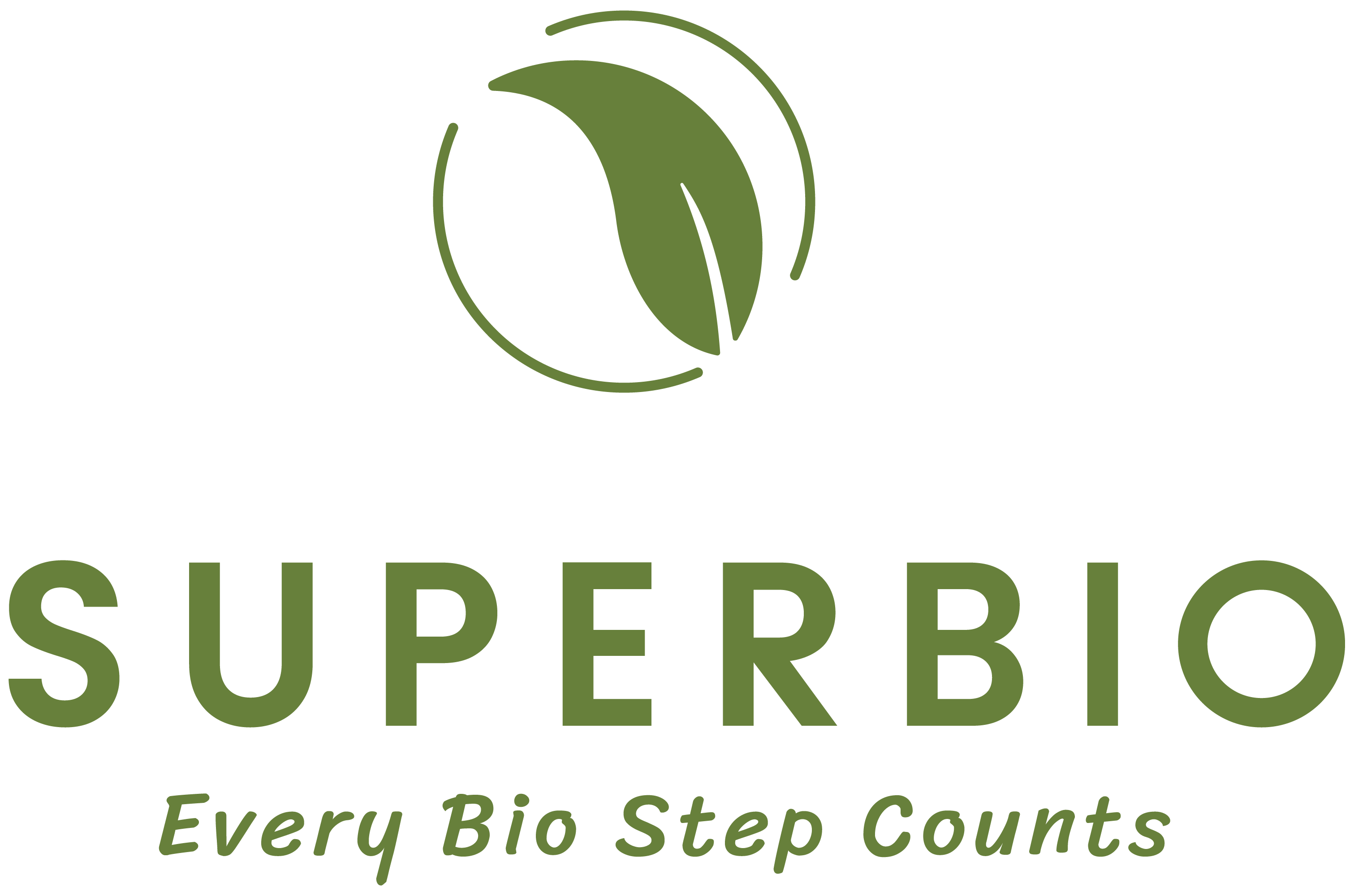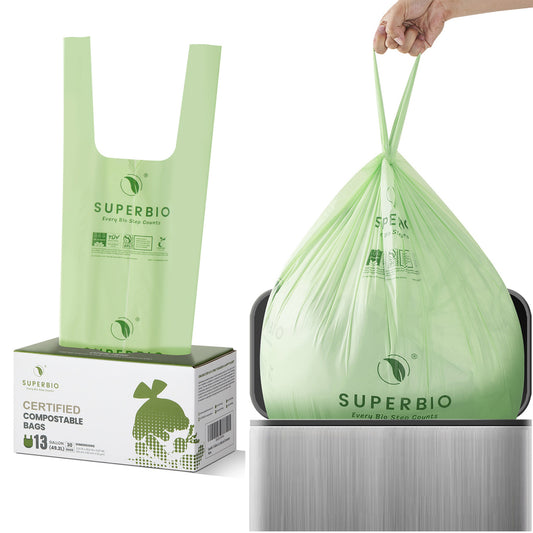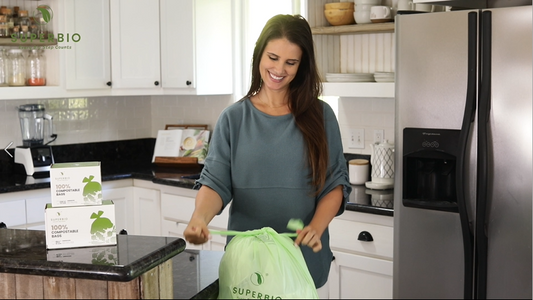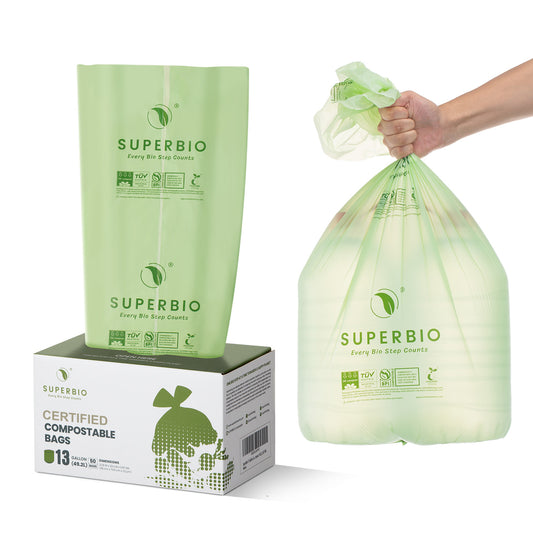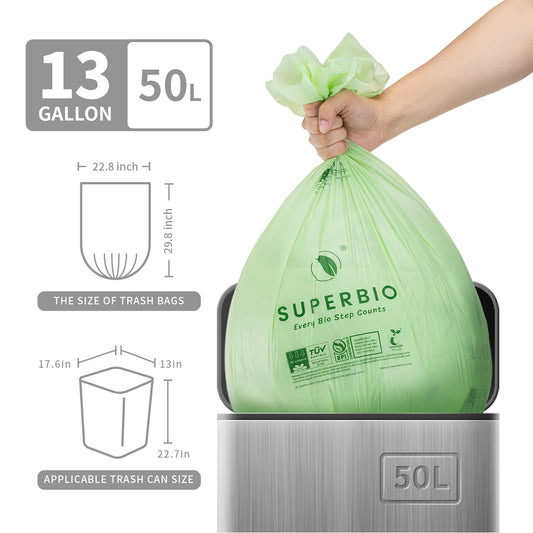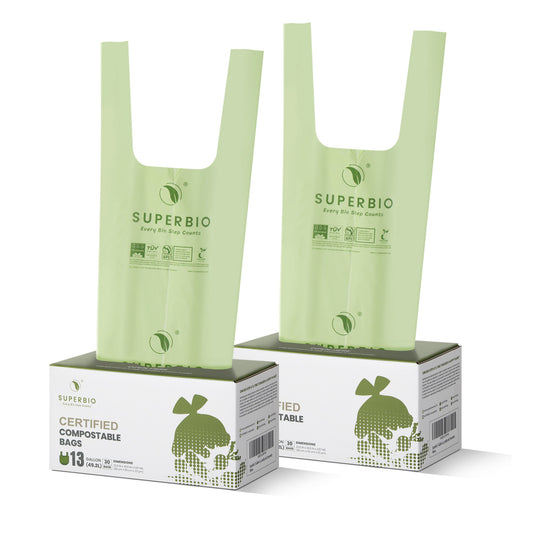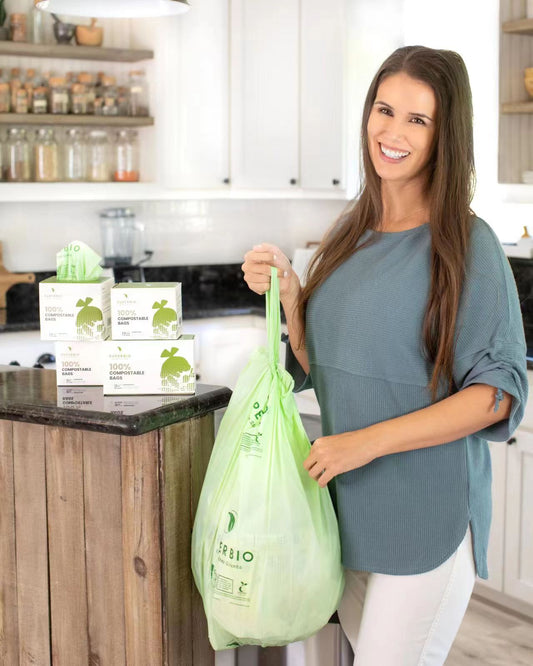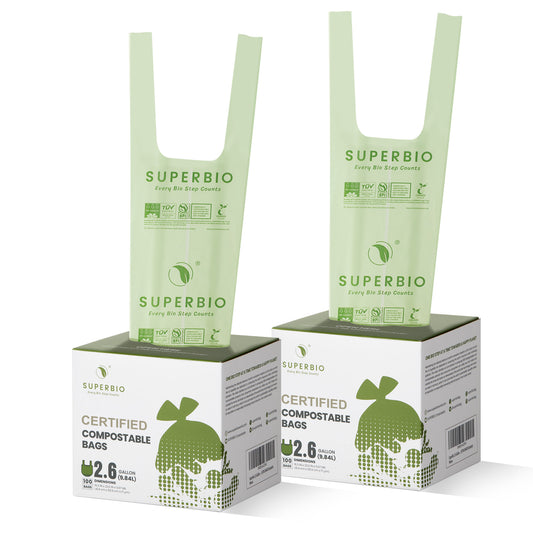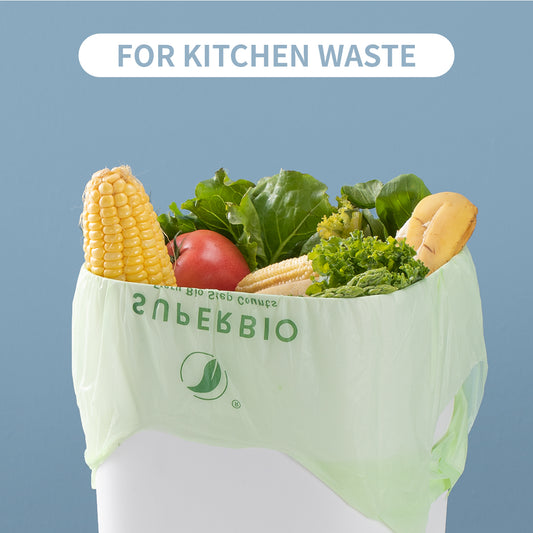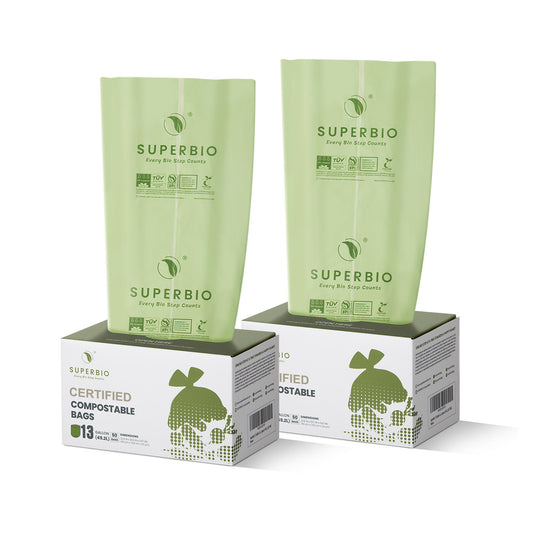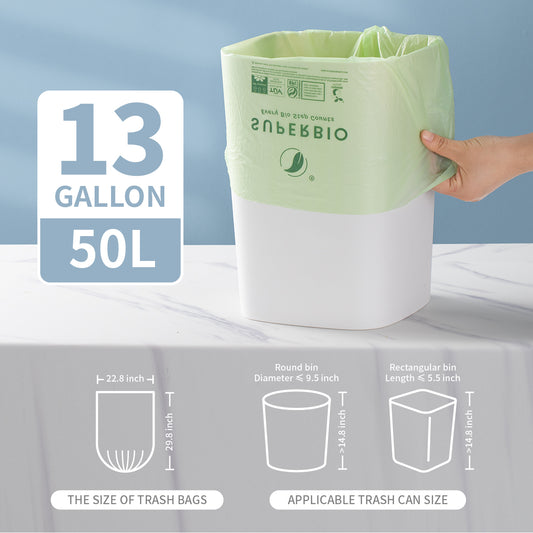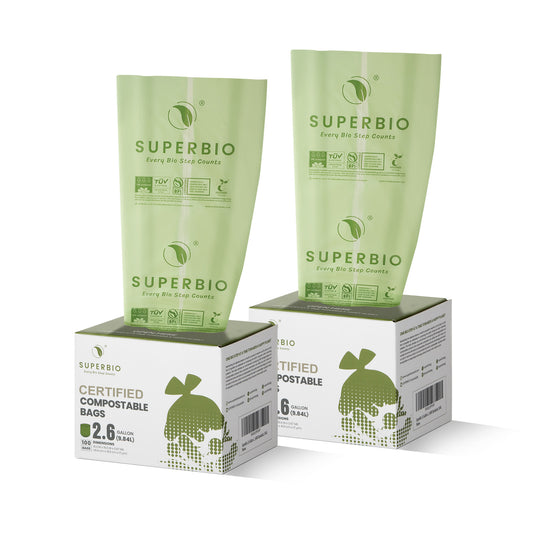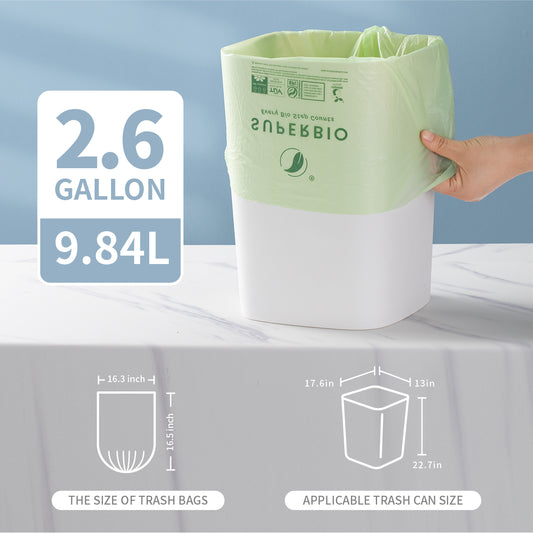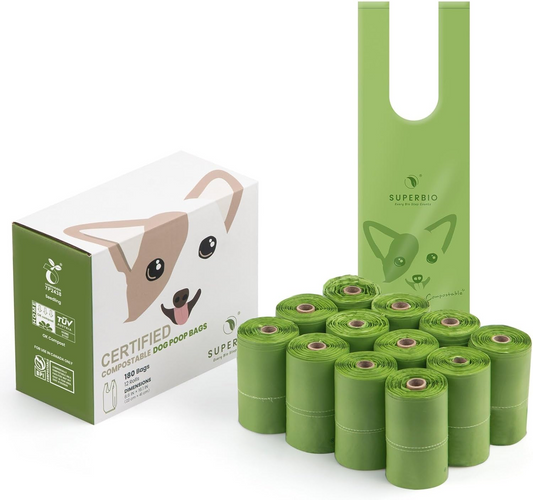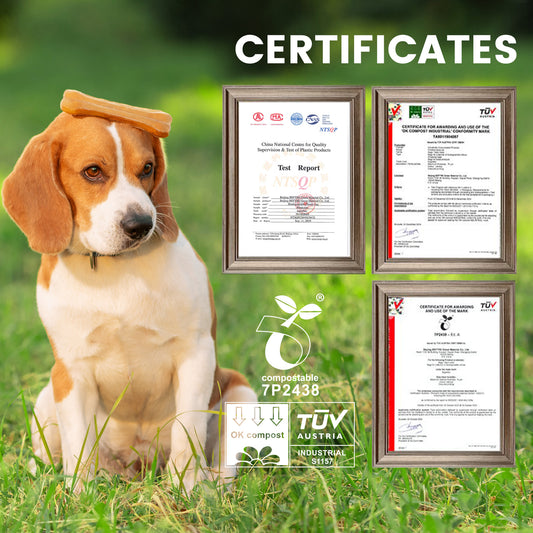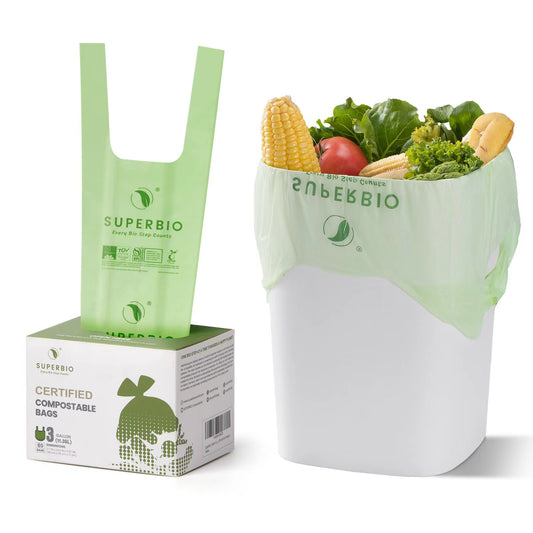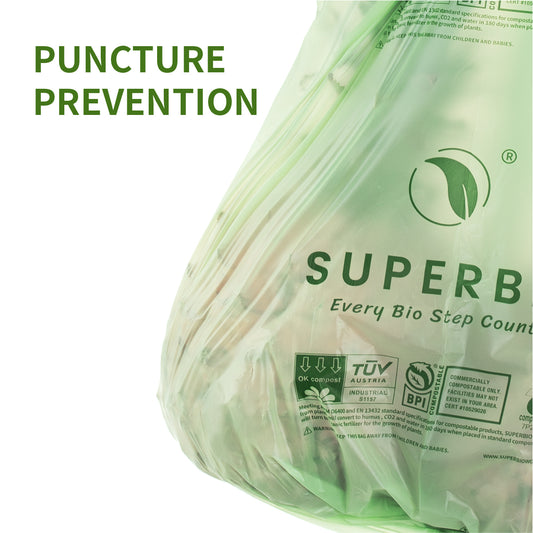

COMMENTS
What our customer saying!
Let customers speak for us
from 59 reviewsI live in CA. Our food wasster is collected separately. These bags are the perfect size and strength and hold more than you think. I always have a bag on the counter. You can "swing twist" to seal off from and rest the weight of the food on the length of the tie. No bugs! Easy to reopen when you have more waster to add, tie them off when it is time to take them to the Food Waste Bin. We have separate food waster collection here in California. These bags are the perfect product.

Sturdy and environmentally friendly!

It fits my small trash containers. I love the ties. It is just terrific! I want more! :)

bags work well, even though they feel thin they work well and no leaks,
really glad they are compostable also glad they have handles

I love the idea and concept of these trash bags. It's the perfect alternative to the plastic trash bags. The hand tie design makes it easy to tie up, carry and throw out. The price is fair and shipping is fast. If your looking for a plastic free trash bag then I would recommend trying these.

Love these compostable garbage bags and feel using them instead of regular plastic is a step in the right direction. They are sufficiently strong (my husband doesn’t complain when he takes them out!) and I even sent them to my 90yr old stepmother who was interested. Yay

We should all buy this product.

They are really great—roomy and the tie handles work good!
Thanks!!!

Works well for me. What else could be said better?

These are the only compostable bags with handles that fit our trashcan and don't rip instantly

These bags are sturdy enough to hold our compost and are exactly the right size for our counter top bin. We’re very pleased and will re-order for sure.

LOVE THEM

We love there small bags. I use them for kitchen scraps as well as liners for small bathroom trash cans.

In an era of products that don’t meet expectations, these bags are sturdy and hold all your lawn clippings.

Excellent, very pleased and impressed with how well these bags hold up.

